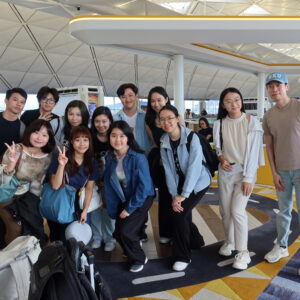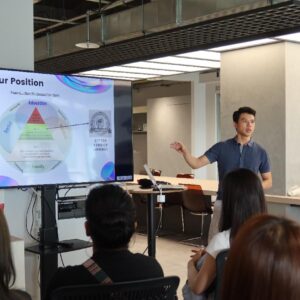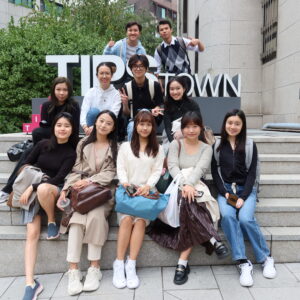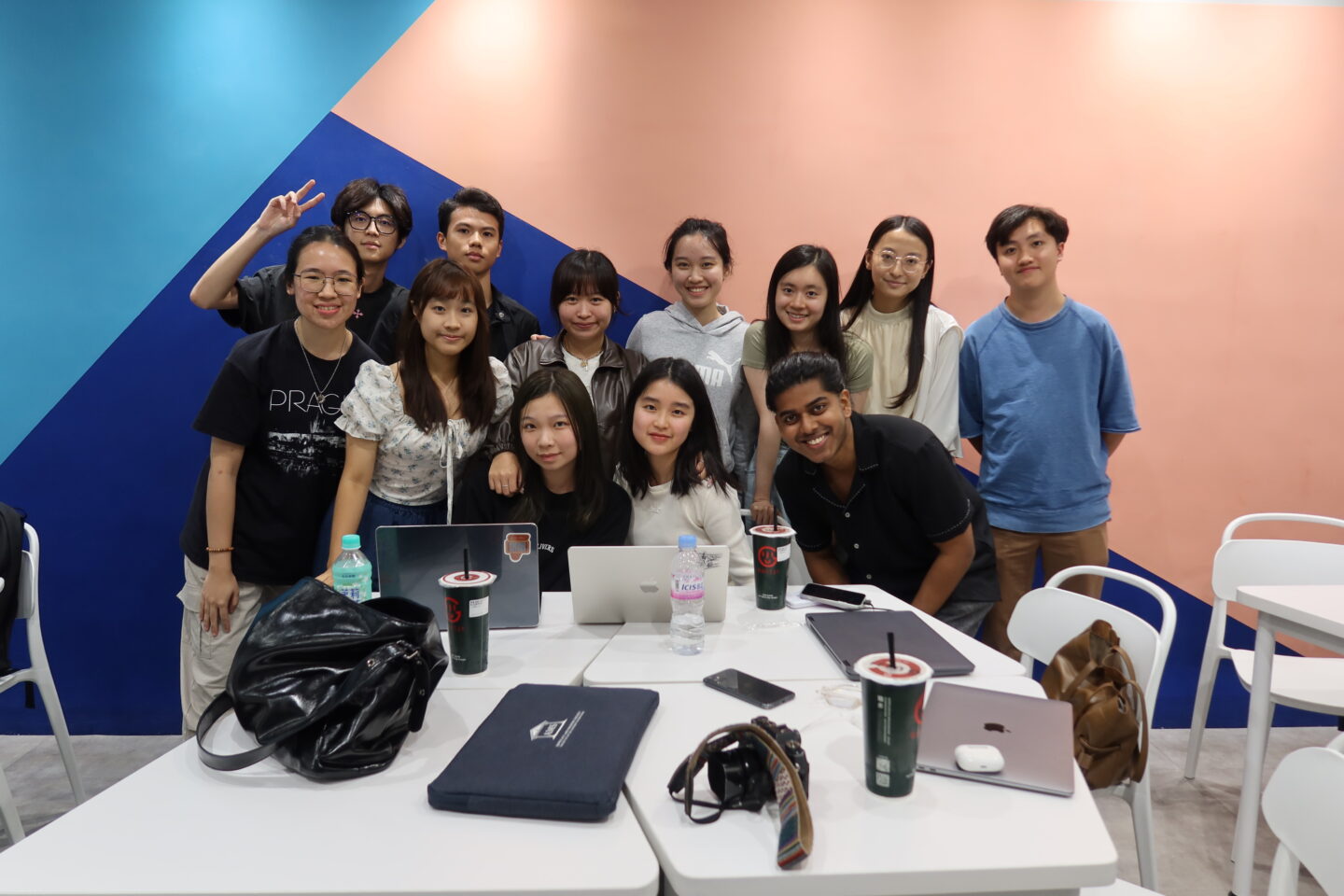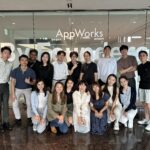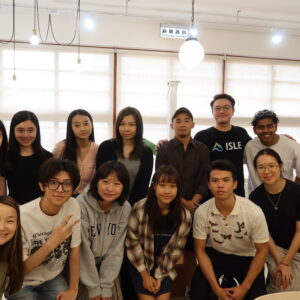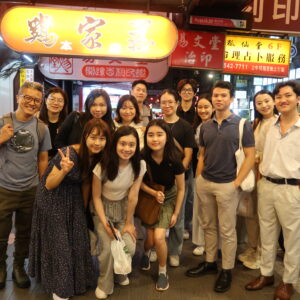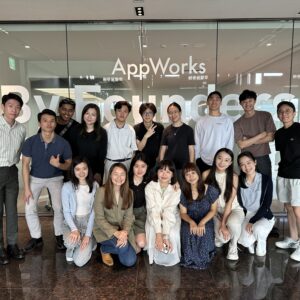As a government and laws student, I have always seen myself as someone who merely had a dictionary understanding of Web 3 and entrepreneurship. They were just abstract ideas, distant from my reality. My aspirations were simple: graduate and secure a stable job. But this course, along with the trip, has been a revelation. It unveiled a vibrant new realm where I gained firsthand insights into how these concepts operate in the real world. I discovered that being an entrepreneur is not the intimidating endeavour I once imagined. Instead, it is about following your passion and letting it guide you.
Reflection on Web 3 Technologies and Data Sovereignty
The presentation by Mr. Joe Park, Co-founder of Blockchain Labs, at SNU left a significant impression on me. As I immerse myself in the world of Web 3 technologies, I find myself grappling with a persistent question: while I understand the concept of decentralization that underpins blockchain and Web 3, what practical purposes do they serve in our everyday lives? For one, imagine the chaos that would ensue if there were no central authority overseeing the value of paper currencies. Centralized authorities often provide a sense of reliability, shielding us from potential inconveniences. To me, Web 3 has appeared more as a fleeting trend than a concrete future.
Mr. Park’s reflections mirrored my own uncertainties. He shared a moment from his career when he had to cancel an Initial Coin Offering for a blockchain project because he struggled to identify any intrinsic value for the coin. However, he did not abandon the concept of blockchain.
What truly inspired me was Mr. Park’s resilience and innovative spirit. During the COVID-19 pandemic, he observed the inadequacy of vaccine records being documented merely by handwritten notes on cards. He also noted the drawbacks of having a centralized organization manage all user information. This led him to innovate with Decentralized Identity (DID) technology for digital vaccination certificates. I was particularly moved by how this technology empowers individuals: the blockchain network operated by the KDCA retains only public key information to verify vaccination authenticity, while users maintain control over their sensitive personal data through a private key. This means they can choose how much information—like their name or date of birth—they wish to share beyond essential vaccination details.
This revelation sparked my understanding of the true value that Web 3 technologies can offer: empowering individuals with data sovereignty. For instance, while Hong Kong’s LeaveHomeSafe app aimed to bolster public health during the pandemic, it raised serious concerns about centralized data collection. The thought that a single authority could access sensitive information about users’ movements and identities is unsettling. Many users feel pressured to adopt such apps due to regulations, yet their worries about data privacy remain unaddressed.
In contrast, Web 3 offers a transformative shift by granting individuals complete control over their identity data. As I reflect on these insights, I am beginning to see Web 3 not just as a technological advancement but as a movement towards greater autonomy and empowerment in our digital lives.
Mr. Park also emphasised that driving change often requires social awareness. He shared how Tesla’s zero-emission concept initially went unnoticed until environmental consciousness began to rise among consumers, leading to its explosive popularity. This made me think about how different the conversation around personal data issues is. Unlike the growing awareness of environmental concerns, many people seem unaware of the implications of sacrificing control over their data for the sake of free access to social media or the convenience of tailored algorithms.
I have come to realize just how valuable our data is—often monetized without our knowledge. Reflecting on my own experiences, I see that we pay a hidden “price” for “free” social media by allowing our attention to be captured and commodified. It is unsettling to think about how we are subtly manipulated by algorithms that cater to our preferences, often without fully understanding the extent of this influence. I find myself wondering how long it will take for society to grasp the true significance of these issues.
Mr. Park’s sharing also enlightened me and my team, as we aim to develop an AI solution that emulates dementia caregivers, offering continuous support for elderly individuals affected by this condition. It has inspired us to explore the concept of personal AI—moving away from centralized systems like ChatGPT, which often follow a one-size-fits-all model and have data controlled by a limited number of corporations.
We envision an AI system that is meticulously tailored to align with users’ specific needs and preferences, employing adaptive algorithms and machine learning techniques to ensure a personalized experience. This design empowers users to interact with the system without concerns regarding data privacy or manipulation.
Our team members
Transforming Perspectives on Social Entrepreneurship through 甘樂文創
If Mr. Joe Park’s insights have opened my eyes to the possibilities within Web3, the work of 甘樂文創 has truly transformed my perspective on social entrepreneurship.
The founders were driven by a pressing societal issue: school dropouts are often vulnerable to criminal activities. I believe this is a crucial aspect of entrepreneurial thinking—recognizing real-world problems that need solutions. They understood that not all children thrive in traditional academic settings. This insight resonates with my experiences in Hong Kong, where the education system is disproportionately focused on examinations, creating an elephant in the room that few dare to confront. Therefore, the genuine efforts of 甘樂文創 to address this issue amplify my admiration for their work.
Despite facing significant challenges such as limited funding and a shortage of educators skilled in non-academic areas, 甘樂文創 demonstrated the power of strategic pivoting. They identified an opportunity within the soybean industry, which is heavily reliant on imports. By utilizing underexploited domestic soybeans, they not only tackled sustainability concerns but also aligned their mission with vocational training for youth in skills like fermentation. This innovative approach inspires me to consider how we can transform obstacles into opportunities in our own projects.
Their vision extends beyond immediate solutions; they aim to cultivate neighborhoods that preserve cultural identity while generating job opportunities for local youth. This ensures that urbanization does not become the sole avenue for upward mobility. By collaborating with traditional artisans, they connect artisanal skills to contemporary market demands, fostering a sense of community and continuity that I find profoundly meaningful.
The founder of 甘樂文創 guiding us a community-based tour.
While we often discuss Corporate Social Development (CSD) and Creating Shared Value (CSV), this community-centric model—deeply rooted in local engagement—is refreshingly novel to me. Reflecting on their journey inspires me to critically assess how I can identify pain points within my community and devise solutions that address specific social issues while maintaining a long-term vision of harnessing collective community power—transforming initiatives from solitary endeavors into collaborative efforts involving multiple stakeholders.
This trip has truly cast a lasting influence on me, demonstrating how values and visions can operate in real life. Every society has its own challenges, and I learned that addressing them requires more than just knowledge; it demands empathy and creativity. I witnessed how ideas can be cast into impactful solutions when driven by a genuine desire to make a difference. This experience has reshaped my perspective, reminding me that my future is not solely about stability but also about contributing meaningfully to the world.

